On a little green patch of turf in Edgartown, a group of 14 people clad all in white engaged in a battle of strategic ballistics Monday.
Gathered at their usual playing field behind the Boys and Girls Club, brandishing long wooden mallets and donning floppy cloth hats, the Edgartown Croquet Club faced off against their counterparts and friendly rivals from Sandwich.
Most laymen will be familiar with croquet in its nine wicket form, a popular casual lawn game. The six wicket American-style rules these club players use, however, is a far cry from the style of croquet at a backyard barbeque.
“This is chess on a lawn,” said Jim Turner, longtime club member and competitive croquet player. A former New England tournament champion, Mr. Turner might have been the man to beat that morning, if it weren’t for a hand injury keeping him out of play.
Still, Mr. Turner came dressed for the occasion: he wore a bucket-hat repping Mission Hills croquet in California and an Edgartown Croquet Club polo tucked into his pants, secured by a needlepoint belt with a ball-and-mallet pattern.
As the Edgartown players awaited their competition, Mr. Turner explained the rules.
Players attempt to whack balls through a circuit of little gates, also known as wickets, before the other team. Competition heats up, Mr. Turner said, when the balls begin to interact with each other.
“This,” he said, setting up a yellow and red ball next to each other, “is the croquet shot.”
It is a rule so important they named the game after it. If, during your turn, your ball hits either your opponents or your partner’s ball, you can pick up your ball and place it next to where the other one ended up.
Next, with the two balls now kissing, you can complete your croquet shot, in which you must move both the balls by only striking your own. The player is then allowed a continuation shot, another chance to hit their ball.
This, in combination with a rule allowing an extra shot after you pass through a wicket, lets a talented player run up the score – all while sabotaging the opposing team’s position.
The resulting game is something like a cross between pool, golf and chess.
As Mr. Turner dove into an exposition on the variable virtues of the standard, Solomon and Irish-style mallet grip, another squad of white enrobed competitors entered the gate.
“Sandwich has arrived,” said club president Cecily Greenaway, gathering the group to assign partners and competitors before sending each off to their respective field. Four games would be played simultaneously for the rest of the day, with the steady thwack of mallets overpowering the squeak of swings from the nearby playground.
“This is social play,” said Susie Herr, a longtime club member, of the semi-casual tournament style. Ms. Herr and another longtime member, Joan Collins, were recruited by one of the club’s founders, the late Edith Blake.
“She was great, and she always brought in tennis players,” Mr. Turner said, noting the similarities between the two sports. The club was founded in 2002.
In her first game of the day Ms. Collins on the blue and black team faced a tough matchup against Bill Blakesly on the red and yellow. After an impressive run through the first four wickets by Mr. Blakesly’s team, Ms. Collins and her partner made a valiant effort to catch up in the second half of the match with a few impressive croquet shots.
Ultimately, though, red and yellow won out. Concession is not considered sportsmanly in croquet, so blue and black fought it out to the end.
Tournament-style croquet, Mr. Turner said, is tough to learn and tougher to master.
“Like any English sport,” he said, “it has lots of arcane rules and terms.”
For those looking to ease their entryway to the sport, and the club is currently looking for new members, Ms. Greenaway recommends trying “golf croquet,” a simpler variation, Wednesdays at 4 p.m.
“If this is chess, then [golf croquet] is checkers,” she said.
The Edgartown Croquet Club meets for six wicket play on Monday and Saturday at 10 a.m., and Wednesday at 2 p.m., at their field by the Martha’s Vineyard Boys and Girls Club. Free lessons are at 9 a.m. on Saturday.

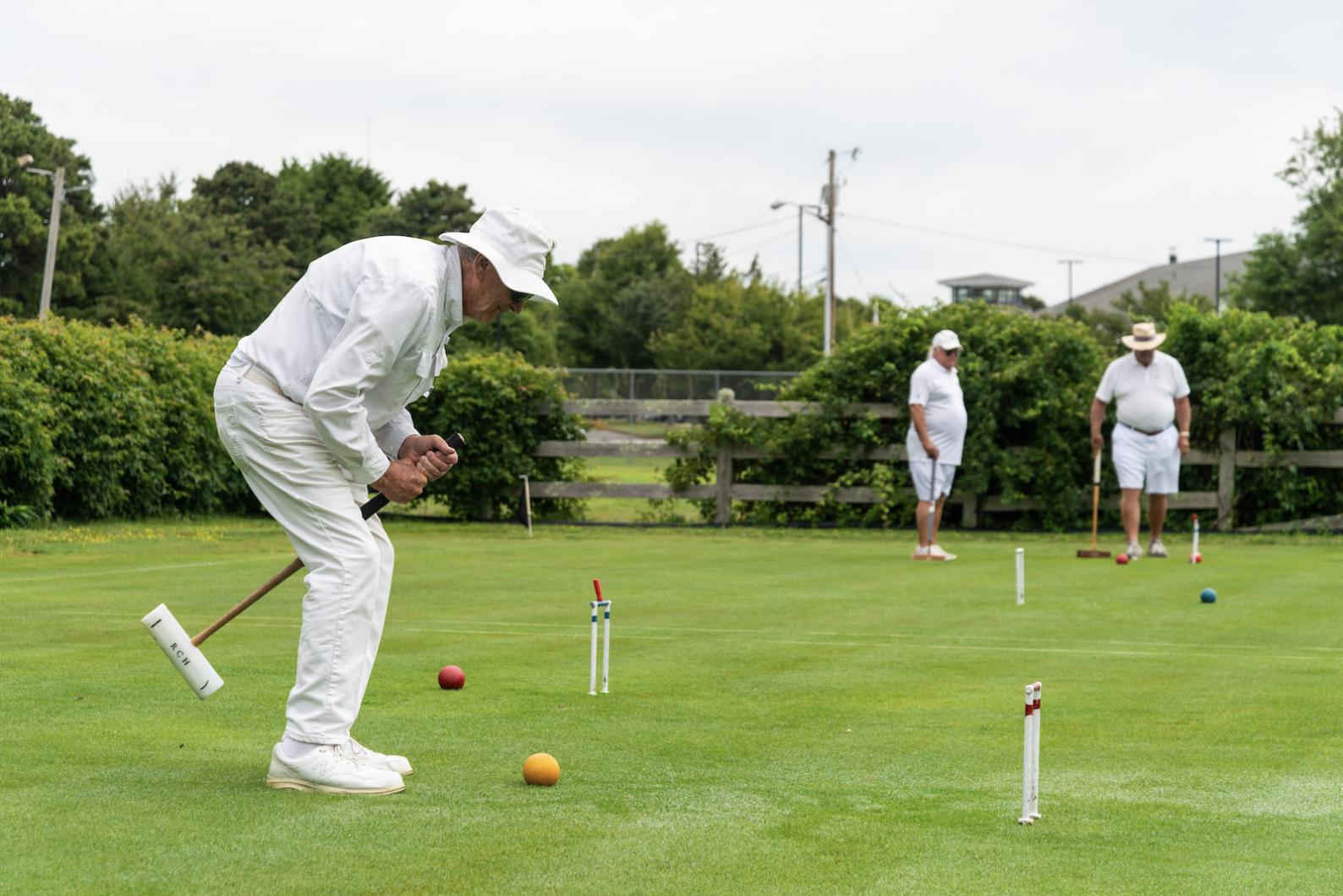
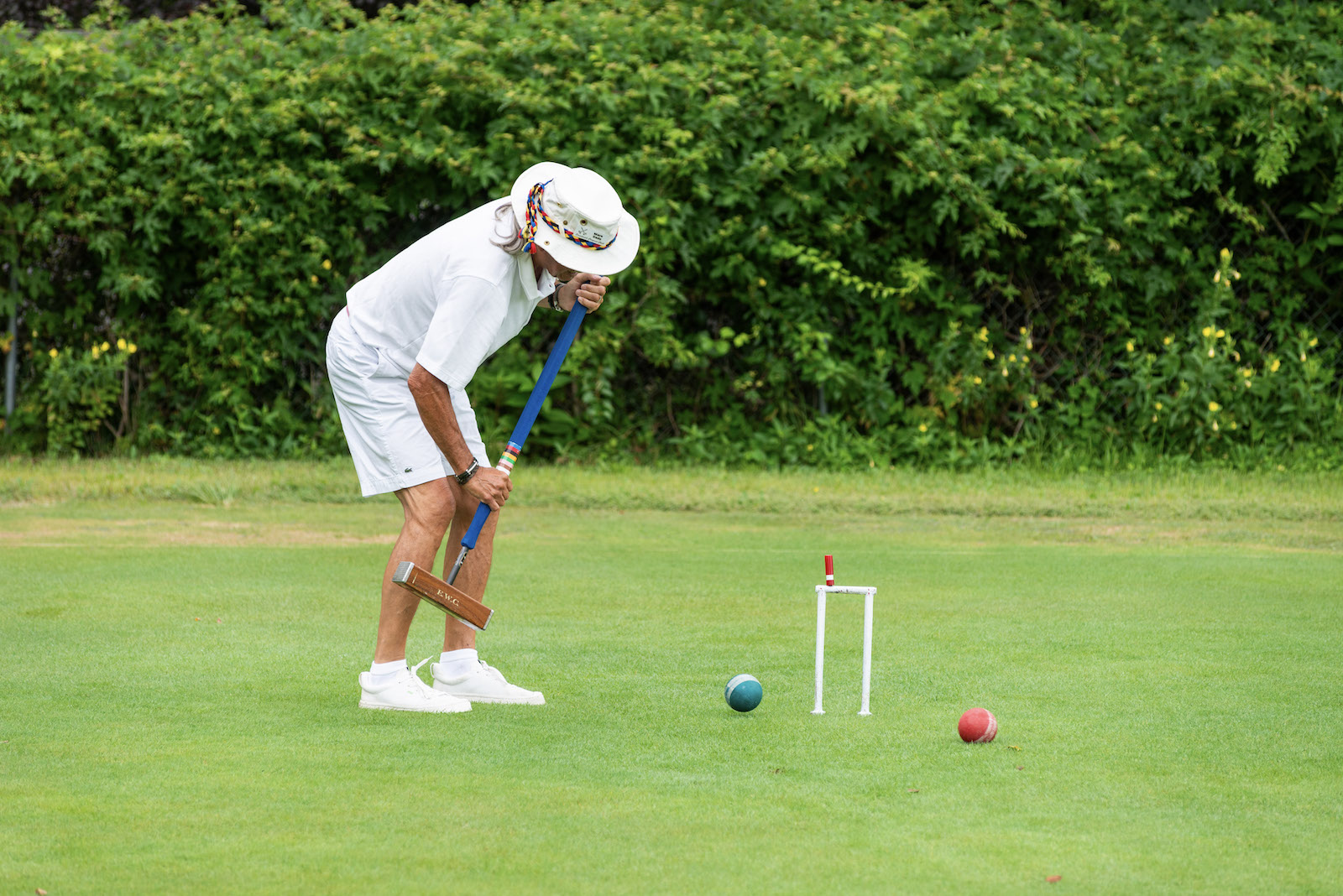
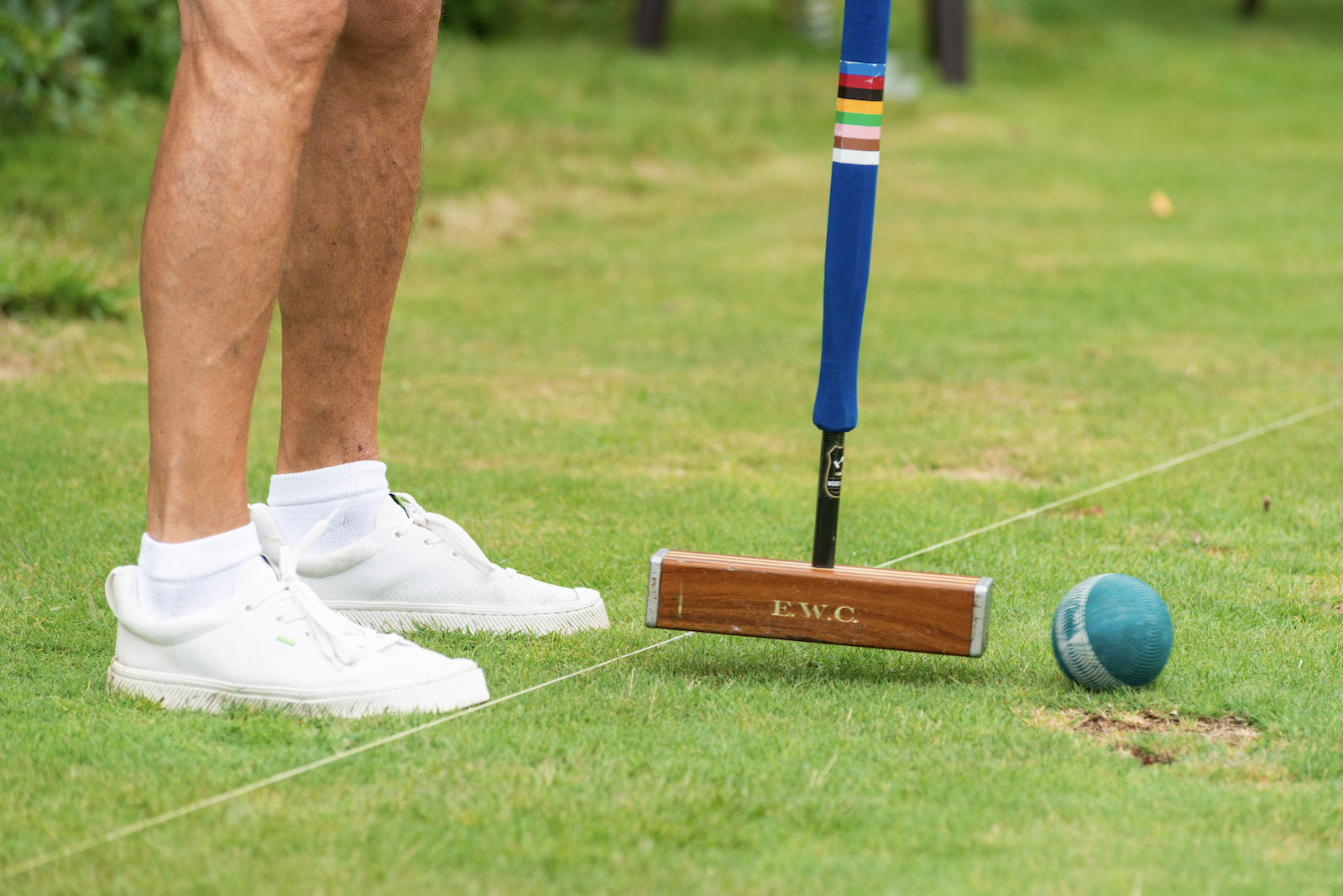
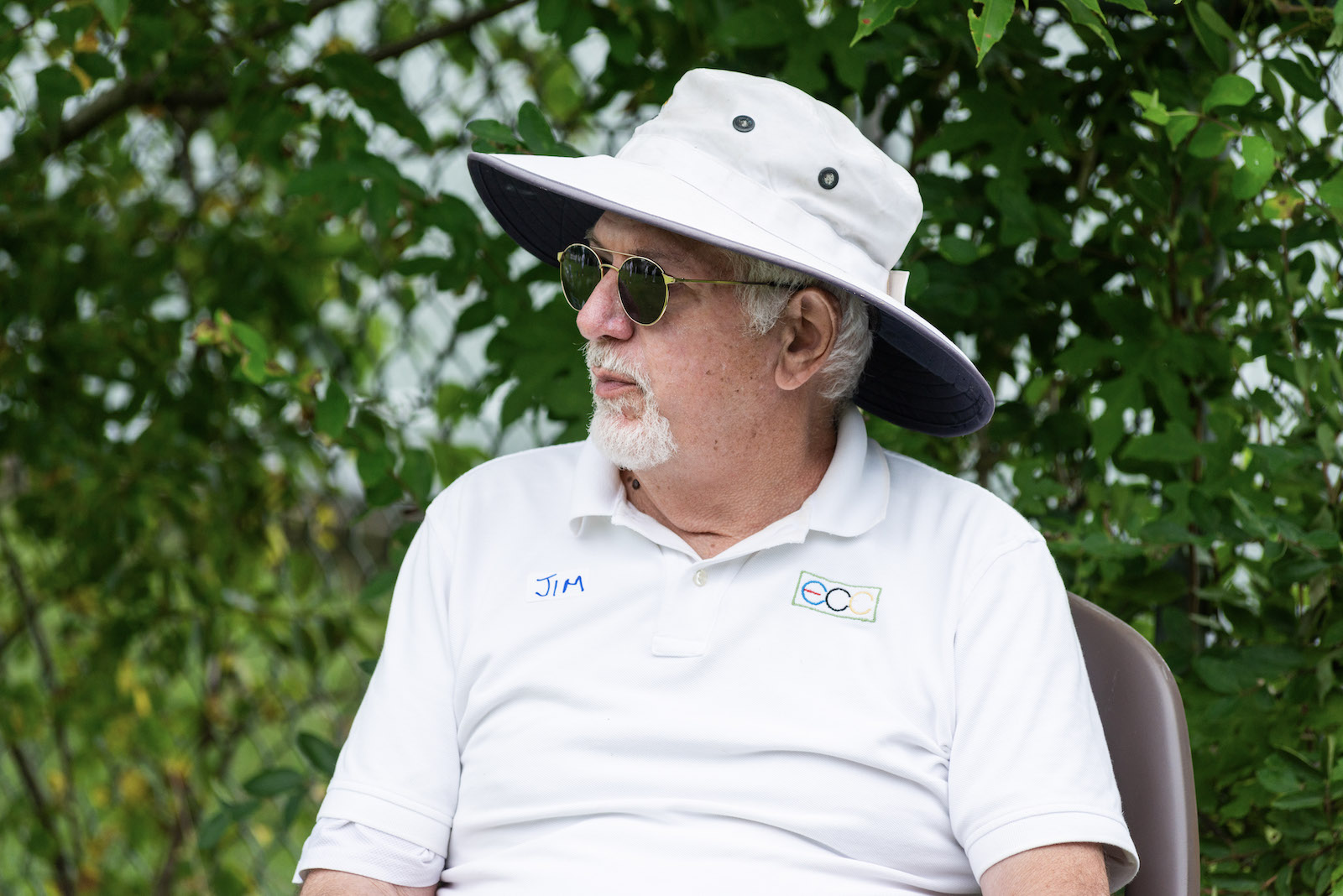
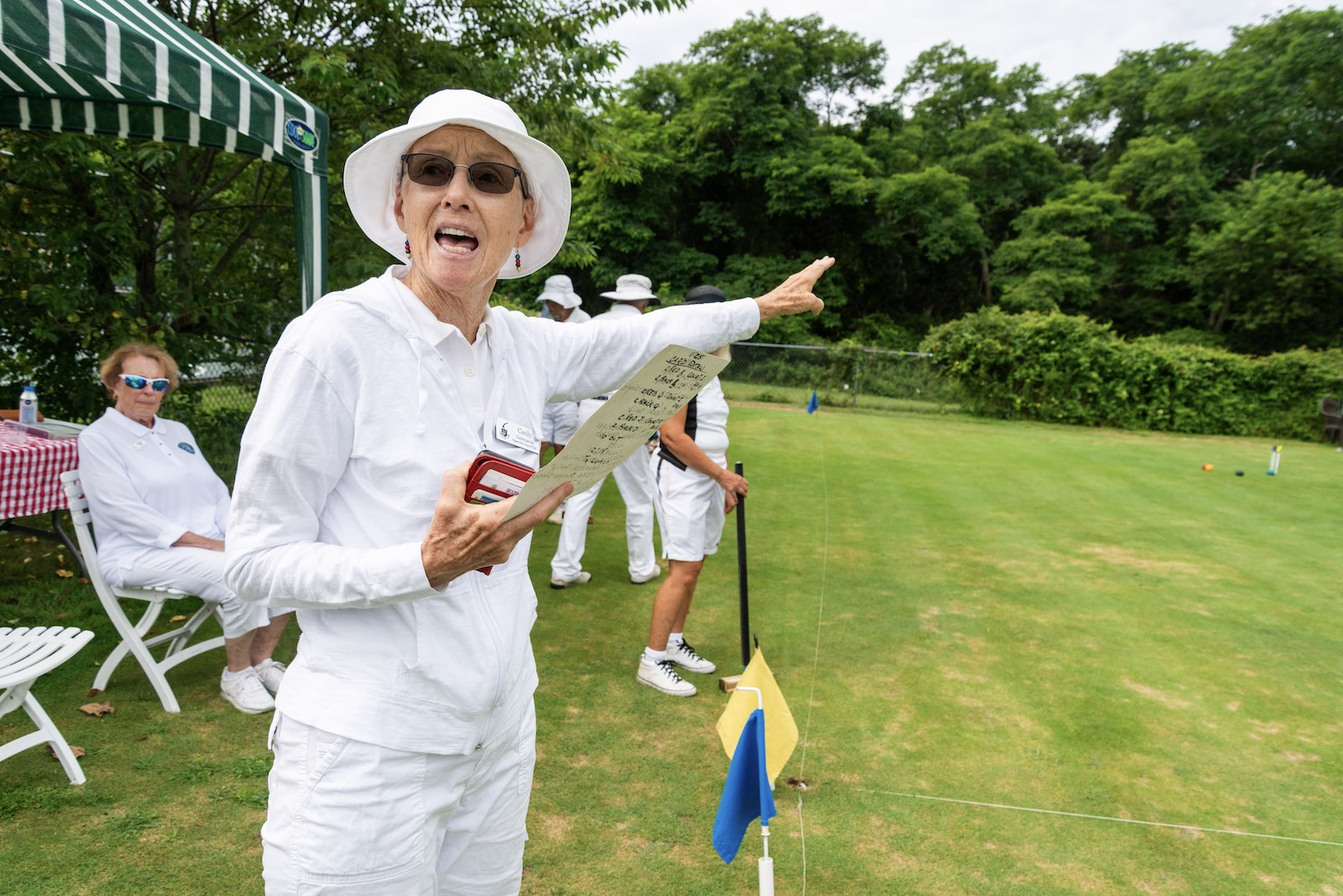




Comments
Comment policy »